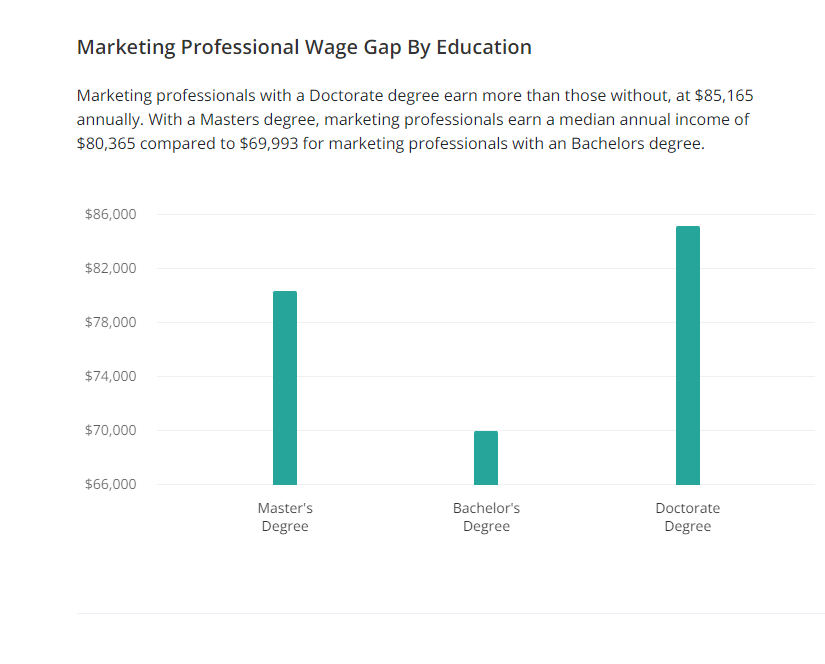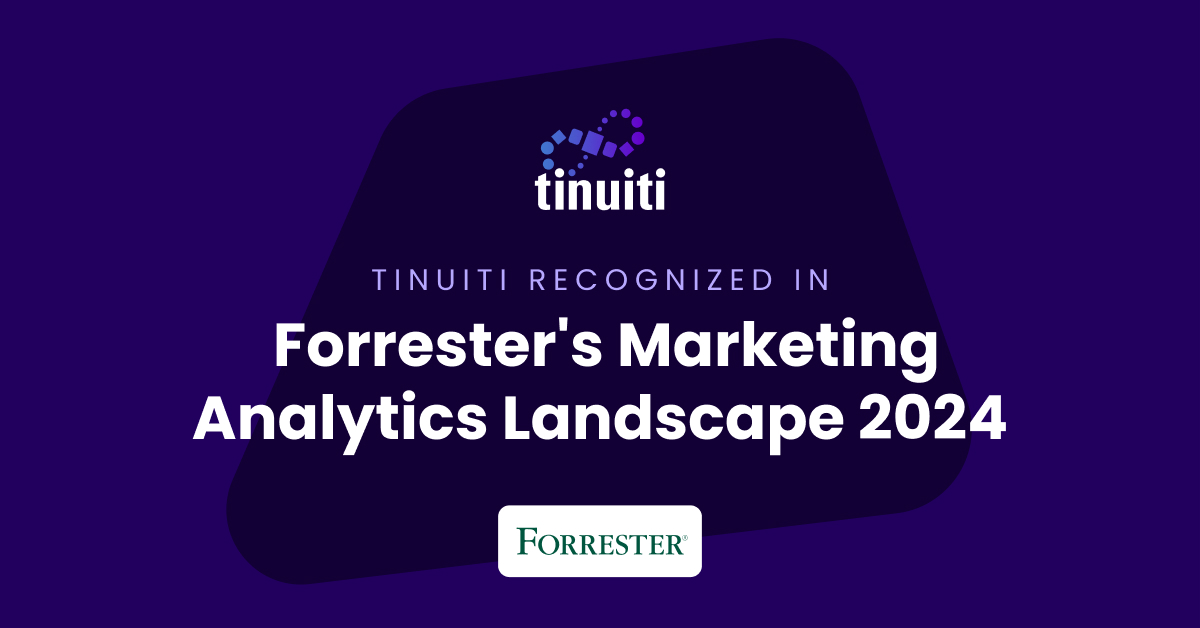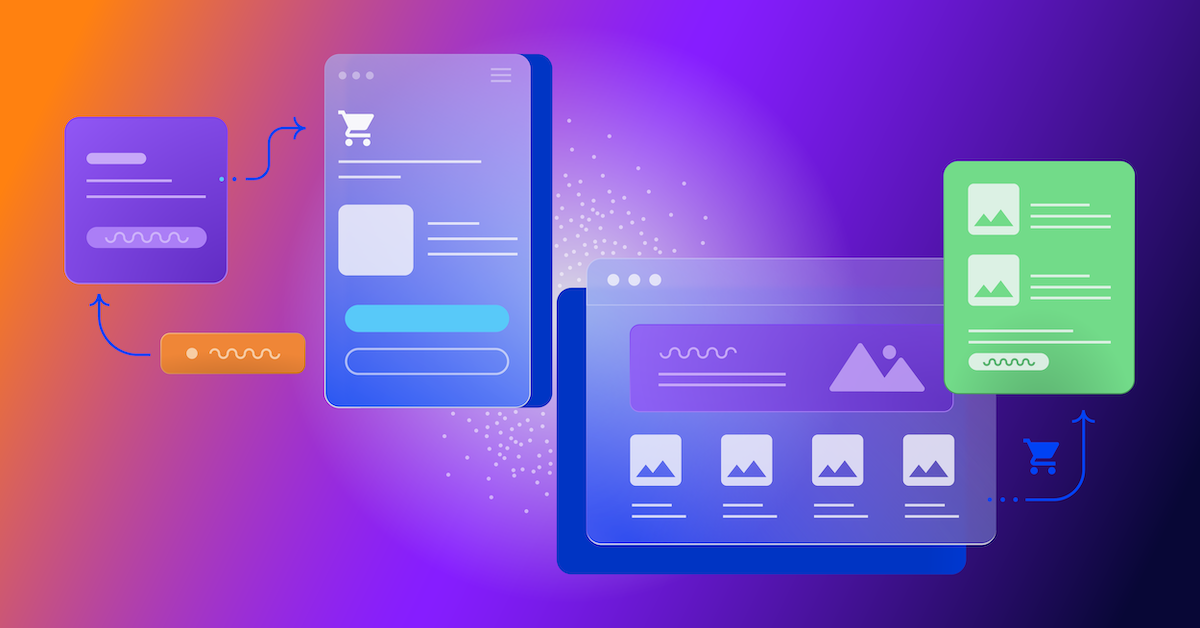MARKETING
Is a Marketing Degree Worth it in 2023?

If you’re thinking about getting a degree at any age, it makes sense to think about the value of that degree. Is the qualification needed for the career you want? Are there alternative paths to that career? Can you develop better skills by gaining experience in work?
All of these are perfectly valid questions. After all, getting a degree requires a pretty large investment of both time and money. You want to know that you’ll get enough return on that investment to make it worthwhile.
Why marketing?
When it comes to marketing, a lot of entry-level jobs list a bachelor’s degree as a requirement. That doesn’t mean there aren’t alternate ways to get into marketing but having a relevant degree certainly makes your resume more competitive.
Growth industry
Marketing skills are in demand in the current jobs market. According to a recent report from LinkedIn, marketing job posts grew 63% in just six months last year. Half of those jobs were in the digital and media sectors, meaning digital and content marketing skills are highly valued.
Personal Development & Career Path
The reason for this increased demand for marketers is tied to the rise in digital marketing. New methods of marketing have continued to develop out of the digital sector. This means that marketers capable of creating engaging content or managing social media accounts are needed.
This leaves a lot of room for personal development. Young graduates who are well-versed in social media and community management can hit the ground running in digital marketing. Getting on this path early can lead to content strategist and marketing management positions.
What are the Types of Marketing Degrees?
When we say marketing degree, the term is a bit too general. There are a lot of degree paths that focus on marketing in major or minor ways. The level of degree available will depend on your current education history, but the specific course will be down to your personal choice.
Associate, Bachelor’s, or Master’s?
Recent statistics suggest that 74% of US marketing professionals hold a bachelor’s degree. 9% have an associate degree and 8% have a master’s degree. Here’s a quick overview of the differences.
Associate degrees – 2-year courses that cover marketing and business in a more basic way than bachelor’s qualifications. They’re designed to give students the basic skills needed to apply for entry-level marketing jobs.
Bachelor’s degrees – 3/4-year courses that cover business and economics. There is a range of bachelor’s courses with marketing at their core, but you’ll also cover wider business topics like management, communication, and administration.
Master’s degrees – 2-year courses, usually only available if you’ve already completed a bachelor’s degree. MA or MBA courses are designed to develop a deep understanding of complex business topics. They are highly specific, covering areas like strategic marketing or marketing analytics.

Free to use image from Pixabay
Marketing Specific or Business General?
This is down to personal choice. There are general business degrees that will cover marketing as a module as well as marketing-specific degrees. There are also multiple universities and colleges, both offline and online, offering different course platforms.
If you’re looking at a specific job role or career path, then research which type of degree is most relevant. Remember that you will need to add to your marketing skills if you intend to progress to management roles in the future.
Check the Modules & Curriculum
This is important, and not only because it lets you see which courses align with your career goals. Marketing has changed significantly over the last decade, even more so if you go back to before the digital age. Many business courses are still behind on current marketing trends.
What Jobs Look for a Marketing Degree?
Once you’ve got your marketing qualification, what jobs should you be looking for? Here are some job titles and areas you should watch out for, and what qualifications you’ll need for them.
Entry level
If you’re starting with a degree and no experience, or work experience but no degree, take a look at these roles.
- Sales/customer service roles – These are adjacent roles to marketing where most companies do not ask for prior qualifications. If you don’t have a degree, this is a good place to start.
- Marketing or public relations intern – Another possibility if you don’t have a degree, or you’re still in education.
- Digital/content marketing associate – These roles will almost always require an associate’s or bachelor’s degree. A good grasp of new digital and social marketing techniques will be required to succeed.
- Copywriter/Bid writer – This is a good route into marketing for those with journalism or literature qualifications. These roles combine aspects of marketing, creative writing, and persuasive writing.
- SEO specialist – A more focused form of marketing centered on SEO content optimization. If you know how to optimize a blog post for search engine rankings, this role is for you. Bachelor’s or associate qualifications will be a minimum requirement.
- Social media/community manager – Since these are relatively new roles, we tend to see a mix of degree-qualified marketers and people who’ve had success fostering communities or online brands but don’t have on-paper credentials.

Free to use image from Unsplash
Career Progression
If you have an MA or MBA, or significant experience in one of the above roles, then you can look at these more advanced roles for your career progression.
- Digital Marketing Manager – A role for experienced marketers that involves running campaigns and coordinating marketing associates.
- Senior Marketing Coordinator – A department management level role. Responsible for overall marketing strategy and departmental performance.
- Content Strategist – A specialist role that focuses on content strategy. Designing content plans based on demographic and keyword research are a core aspect of this role.
- Marketing Analyst – This role involves analyzing customer behaviors and market trends. If you want to move into analysis from a more direct marketing role, you’ll likely need specific data analysis qualifications.
- Public Relations Specialist – The public voice of a large organization’s PR team. Managing a brand’s public perception and setting brand-level communication policies like tone of voice.
- Experiential Marketing Specialist – This area of marketing is focused on optimizing the customer experience. Experiential specialists have a deep understanding of customer psychology and behaviors.
- Corporate Communications Manager – Communications managers are responsible for company-wide communications policies. This is an executive-level role that a marketing coordinator or public relations manager might move up to.
Average marketing salaries
Across all the roles we’ve discussed above, salaries vary widely. For those entry-level roles, you could be looking at anything from $25 – $40K depending on the role and your experience.
When it comes to median earnings for marketers with a bachelor’s or master’s degree, we can get a bit more specific. Recent statistics from Zippia show us that $69,993 p/a is the average for bachelor’s degree holders and $80,365 p/a for master’s degree marketers.

Image sourced from Zippia.com
Marketing Degree Pros and Cons
So, the question we asked above was “Is a marketing degree worth it?” Yet, in truth, it’s not a simple yes or no answer. The question you need to ask is “Is a marketing degree right for me?” Here’s a summary of the pros and cons that might give you some answers.
Pros
- Degree holders have better job prospects and higher earnings potential in marketing
- You can study highly specific skills with the right courses
- Gain soft skills like communication and collaboration
Cons
- High time and money investment required
- Diminishing salary returns at higher levels
- Can be a restrictive environment for self-starters and entrepreneurs
What are Marketing Degree Alternatives?
If you want to stick with education but don’t want to invest four years into a degree, then accredited online courses can provide an alternative. This can be your best choice if you wish to upskill in a specific area like running conference calls from Canada.
If higher education really isn’t your thing, the other option is gaining experience. Some businesses prefer internships and training programs for entry-level roles. This allows them to train marketers “their way” rather than re-training someone with more experience.

Free to use image from Unsplash
How to Decide if a Marketing Degree is Right for You
Ultimately, choosing to do a marketing degree depends on your goals, your preferences, and your talents. Consider all three factors before making your choice.
Career Goals
Do you want a management position that needs marketing knowledge? What areas of marketing interest you? What skills do you already possess? Answering these three questions will help you define your career path. That will narrow down your course choices.
If you want to get better at selling small business phone systems in Vancouver, you don’t need a four-year course for that. If you want to develop into high-level marketing roles, then you want that degree.
Personality
You don’t need a specific personality type to work in marketing. Your personality and interests might determine what area of marketing would suit you best though. For example, if you’re outgoing and creative then public relations or social media management might be for you.
Investment & Return
Money isn’t everything. But, if you’re going to put the resources into getting a degree, you want to know that you’ll get some return on your investment. From the figures we quoted above, it seems the “optimal” qualification in terms of salary return vs. time and money investment is a bachelor’s degree.
Average earnings for marketers with a master’s qualification were only $10k higher. This suggests that you’re not really getting a significant financial return for the additional investment. Of course, if that master’s leads to your dream job, you might see it differently.
Final Thoughts: Forge Your Own Path
Is a marketing degree worth it in 2023? The short answer is yes. Whether that means a marketing degree is right for you, we can’t tell you. Hopefully, though, this guide has given you the information you need to make that choice.
MARKETING
Tinuiti Marketing Analytics Recognized by Forrester

Rapid Media Mix Modeling and Proprietary Tech Transform Brand Performance
Tinuiti, the largest independent full-funnel performance marketing agency, has been included in a recent Forrester Research report titled, “The Marketing Analytics Landscape, Q2 2024.” This report comprehensively overviews marketing analytics markets, use cases, and capabilities. B2C marketing leaders can use this research by Principal Analyst Tina Moffett to understand the intersection of marketing analytics capabilities and use cases to determine the vendor or service provider best positioned for their analytics and insights needs. Moffett describes the top marketing analytics markets as advertising agencies, marketing dashboards and business intelligence tools, marketing measurement and optimization platforms and service providers, and media analytics tools.
As an advertising agency, we believe Tinuiti is uniquely positioned to manage advertising campaigns for brands including buying, targeting, and measurement. Our proprietary measurement technology, Bliss Point by Tinuiti, allows us to measure the optimal level of investment to maximize impact and efficiency. According to the Forrester report, “only 30% of B2C marketing decision-makers say their organization uses marketing or media mix modeling (MMM),” so having a partner that knows, embraces, and utilizes MMM is important. As Tina astutely explains, data-driven agencies have amplified their marketing analytics competencies with data science expertise; and proprietary tools; and tailored their marketing analytics techniques based on industry, business, and data challenges.
Our Rapid Media Mix Modeling sets a new standard in the market with its exceptional speed, precision, and transparency. Our patented tech includes Rapid Media Mix Modeling, Always-on Incrementality, Brand Equity, Creative Insights, and Forecasting – it will get you to your Marketing Bliss Point in each channel, across your entire media mix, and your overall brand performance.
As a marketing leader you may ask yourself:
- How much of our marketing budget should we allocate to driving store traffic versus e-commerce traffic?
- How should we allocate our budget by channel to generate the most traffic and revenue possible?
- How many customers did we acquire in a specific region with our media spend?
- What is the impact of seasonality on our media mix?
- How should we adjust our budget accordingly?
- What is the optimal marketing channel mix to maximize brand awareness?
These are just a few of the questions that Bliss Point by Tinuiti can help you answer.
Learn more about our customer-obsessed, product-enabled, and fully integrated approach and how we’ve helped fuel full-funnel outcomes for the world’s most digital-forward brands like Poppi & Toms.
The Landscape report is available online to Forrester customers or for purchase here.
MARKETING
Ecommerce evolution: Blurring the lines between B2B and B2C

Understanding convergence
B2B and B2C ecommerce are two distinct models of online selling. B2B ecommerce is between businesses, such as wholesalers, distributors, and manufacturers. B2C ecommerce refers to transactions between businesses like retailers and consumer brands, directly to individual shoppers.
However, in recent years, the boundaries between these two models have started to fade. This is known as the convergence between B2B and B2C ecommerce and how they are becoming more similar and integrated.
Source: White Paper: The evolution of the B2B Consumer Buyer (ClientPoint, Jan 2024)
What’s driving this change?
Ever increasing customer expectations
Customers today expect the same level of convenience, speed, and personalization in their B2B transactions as they do in their B2C interactions. B2B buyers are increasingly influenced by their B2C experiences. They want research, compare, and purchase products online, seamlessly transitioning between devices and channels. They also prefer to research and purchase online, using multiple devices and channels.
Forrester, 68% of buyers prefer to research on their own, online . Customers today expect the same level of convenience, speed, and personalization in their B2B transactions as they do in their B2C interactions. B2B buyers are increasingly influenced by their B2C experiences. They want research, compare, and purchase products online, seamlessly transitioning between devices and channels. They also prefer to research and purchase online, using multiple devices and channels
Technology and omnichannel strategies
Technology enables B2B and B2C ecommerce platforms to offer more features and functionalities, such as mobile optimization, chatbots, AI, and augmented reality. Omnichannel strategies allow B2B and B2C ecommerce businesses to provide a seamless and consistent customer experience across different touchpoints, such as websites, social media, email, and physical stores.
However, with every great leap forward comes its own set of challenges. The convergence of B2B and B2C markets means increased competition. Businesses now not only have to compete with their traditional rivals, but also with new entrants and disruptors from different sectors. For example, Amazon Business, a B2B ecommerce platform, has become a major threat to many B2B ecommerce businesses, as it offers a wide range of products, low prices, and fast delivery
“Amazon Business has proven that B2B ecommerce can leverage popular B2C-like functionality” argues Joe Albrecht, CEO / Managing Partner, Xngage. . With features like Subscribe-and-Save (auto-replenishment), one-click buying, and curated assortments by job role or work location, they make it easy for B2B buyers to go to their website and never leave. Plus, with exceptional customer service and promotional incentives like Amazon Business Prime Days, they have created a reinforcing loyalty loop.
And yet, according to Barron’s, Amazon Business is only expected to capture 1.5% of the $5.7 Trillion addressable business market by 2025. If other B2B companies can truly become digital-first organizations, they can compete and win in this fragmented space, too.”
If other B2B companies can truly become digital-first organizations, they can also compete and win in this fragmented space
Joe AlbrechtCEO/Managing Partner, XNGAGE
Increasing complexity
Another challenge is the increased complexity and cost of managing a converging ecommerce business. Businesses have to deal with different customer segments, requirements, and expectations, which may require different strategies, processes, and systems. For instance, B2B ecommerce businesses may have to handle more complex transactions, such as bulk orders, contract negotiations, and invoicing, while B2C ecommerce businesses may have to handle more customer service, returns, and loyalty programs. Moreover, B2B and B2C ecommerce businesses must invest in technology and infrastructure to support their convergence efforts, which may increase their operational and maintenance costs.
How to win
Here are a few ways companies can get ahead of the game:
Adopt B2C-like features in B2B platforms
User-friendly design, easy navigation, product reviews, personalization, recommendations, and ratings can help B2B ecommerce businesses to attract and retain more customers, as well as to increase their conversion and retention rates.
According to McKinsey, ecommerce businesses that offer B2C-like features like personalization can increase their revenues by 15% and reduce their costs by 20%. You can do this through personalization of your website with tools like Product Recommendations that help suggest related products to increase sales.
Focus on personalization and customer experience
B2B and B2C ecommerce businesses need to understand their customers’ needs, preferences, and behaviors, and tailor their offerings and interactions accordingly. Personalization and customer experience can help B2B and B2C ecommerce businesses to increase customer satisfaction, loyalty, and advocacy, as well as to improve their brand reputation and competitive advantage. According to a Salesforce report, 88% of customers say that the experience a company provides is as important as its products or services.
Market based on customer insights
Data and analytics can help B2B and B2C ecommerce businesses to gain insights into their customers, markets, competitors, and performance, and to optimize their strategies and operations accordingly. Data and analytics can also help B2B and B2C ecommerce businesses to identify new opportunities, trends, and innovations, and to anticipate and respond to customer needs and expectations. According to McKinsey, data-driven organizations are 23 times more likely to acquire customers, six times more likely to retain customers, and 19 times more likely to be profitable.
What’s next?
The convergence of B2B and B2C ecommerce is not a temporary phenomenon, but a long-term trend that will continue to shape the future of ecommerce. According to Statista, the global B2B ecommerce market is expected to reach $20.9 trillion by 2027, surpassing the B2C ecommerce market, which is expected to reach $10.5 trillion by 2027. Moreover, the report predicts that the convergence of B2B and B2C ecommerce will create new business models, such as B2B2C, B2A (business to anyone), and C2B (consumer to business).
Therefore, B2B and B2C ecommerce businesses need to prepare for the converging ecommerce landscape and take advantage of the opportunities and challenges it presents. Here are some recommendations for B2B and B2C ecommerce businesses to navigate the converging landscape:
- Conduct a thorough analysis of your customers, competitors, and market, and identify the gaps and opportunities for convergence.
- Develop a clear vision and strategy for convergence, and align your goals, objectives, and metrics with it.
- Invest in technology and infrastructure that can support your convergence efforts, such as cloud, mobile, AI, and omnichannel platforms.
- Implement B2C-like features in your B2B platforms, and vice versa, to enhance your customer experience and satisfaction.
- Personalize your offerings and interactions with your customers, and provide them with relevant and valuable content and solutions.
- Leverage data and analytics to optimize your performance and decision making, and to innovate and differentiate your business.
- Collaborate and partner with other B2B and B2C ecommerce businesses, as well as with other stakeholders, such as suppliers, distributors, and customers, to create value and synergy.
- Monitor and evaluate your convergence efforts, and adapt and improve them as needed.
By following these recommendations, B2B and B2C ecommerce businesses can bridge the gap between their models and create a more integrated and seamless ecommerce experience for their customers and themselves.
MARKETING
Streamlining Processes for Increased Efficiency and Results

How can businesses succeed nowadays when technology rules? With competition getting tougher and customers changing their preferences often, it’s a challenge. But using marketing automation can help make things easier and get better results. And in the future, it’s going to be even more important for all kinds of businesses.
So, let’s discuss how businesses can leverage marketing automation to stay ahead and thrive.
Benefits of automation marketing automation to boost your efforts
First, let’s explore the benefits of marketing automation to supercharge your efforts:
Marketing automation simplifies repetitive tasks, saving time and effort.
With automated workflows, processes become more efficient, leading to better productivity. For instance, automation not only streamlines tasks like email campaigns but also optimizes website speed, ensuring a seamless user experience. A faster website not only enhances customer satisfaction but also positively impacts search engine rankings, driving more organic traffic and ultimately boosting conversions.
Automation allows for precise targeting, reaching the right audience with personalized messages.
With automated workflows, processes become more efficient, leading to better productivity. A great example of automated workflow is Pipedrive & WhatsApp Integration in which an automated welcome message pops up on their WhatsApp
within seconds once a potential customer expresses interest in your business.
Increases ROI
By optimizing campaigns and reducing manual labor, automation can significantly improve return on investment.
Leveraging automation enables businesses to scale their marketing efforts effectively, driving growth and success. Additionally, incorporating lead scoring into automated marketing processes can streamline the identification of high-potential prospects, further optimizing resource allocation and maximizing conversion rates.
Harnessing the power of marketing automation can revolutionize your marketing strategy, leading to increased efficiency, higher returns, and sustainable growth in today’s competitive market. So, why wait? Start automating your marketing efforts today and propel your business to new heights, moreover if you have just learned ways on how to create an online business
How marketing automation can simplify operations and increase efficiency
Understanding the Change
Marketing automation has evolved significantly over time, from basic email marketing campaigns to sophisticated platforms that can manage entire marketing strategies. This progress has been fueled by advances in technology, particularly artificial intelligence (AI) and machine learning, making automation smarter and more adaptable.
One of the main reasons for this shift is the vast amount of data available to marketers today. From understanding customer demographics to analyzing behavior, the sheer volume of data is staggering. Marketing automation platforms use this data to create highly personalized and targeted campaigns, allowing businesses to connect with their audience on a deeper level.
The Emergence of AI-Powered Automation
In the future, AI-powered automation will play an even bigger role in marketing strategies. AI algorithms can analyze huge amounts of data in real-time, helping marketers identify trends, predict consumer behavior, and optimize campaigns as they go. This agility and responsiveness are crucial in today’s fast-moving digital world, where opportunities come and go in the blink of an eye. For example, we’re witnessing the rise of AI-based tools from AI website builders, to AI logo generators and even more, showing that we’re competing with time and efficiency.
Combining AI-powered automation with WordPress management services streamlines marketing efforts, enabling quick adaptation to changing trends and efficient management of online presence.
Moreover, AI can take care of routine tasks like content creation, scheduling, and testing, giving marketers more time to focus on strategic activities. By automating these repetitive tasks, businesses can work more efficiently, leading to better outcomes. AI can create social media ads tailored to specific demographics and preferences, ensuring that the content resonates with the target audience. With the help of an AI ad maker tool, businesses can efficiently produce high-quality advertisements that drive engagement and conversions across various social media platforms.
Personalization on a Large Scale
Personalization has always been important in marketing, and automation is making it possible on a larger scale. By using AI and machine learning, marketers can create tailored experiences for each customer based on their preferences, behaviors, and past interactions with the brand.
This level of personalization not only boosts customer satisfaction but also increases engagement and loyalty. When consumers feel understood and valued, they are more likely to become loyal customers and brand advocates. As automation technology continues to evolve, we can expect personalization to become even more advanced, enabling businesses to forge deeper connections with their audience. As your company has tiny homes for sale California, personalized experiences will ensure each customer finds their perfect fit, fostering lasting connections.
Integration Across Channels
Another trend shaping the future of marketing automation is the integration of multiple channels into a cohesive strategy. Today’s consumers interact with brands across various touchpoints, from social media and email to websites and mobile apps. Marketing automation platforms that can seamlessly integrate these channels and deliver consistent messaging will have a competitive edge. When creating a comparison website it’s important to ensure that the platform effectively aggregates data from diverse sources and presents it in a user-friendly manner, empowering consumers to make informed decisions.
Omni-channel integration not only betters the customer experience but also provides marketers with a comprehensive view of the customer journey. By tracking interactions across channels, businesses can gain valuable insights into how consumers engage with their brand, allowing them to refine their marketing strategies for maximum impact. Lastly, integrating SEO services into omni-channel strategies boosts visibility and helps businesses better understand and engage with their customers across different platforms.
The Human Element
While automation offers many benefits, it’s crucial not to overlook the human aspect of marketing. Despite advances in AI and machine learning, there are still elements of marketing that require human creativity, empathy, and strategic thinking.
Successful marketing automation strikes a balance between technology and human expertise. By using automation to handle routine tasks and data analysis, marketers can focus on what they do best – storytelling, building relationships, and driving innovation.
Conclusion
The future of marketing automation looks promising, offering improved efficiency and results for businesses of all sizes.
As AI continues to advance and consumer expectations change, automation will play an increasingly vital role in keeping businesses competitive.
By embracing automation technologies, marketers can simplify processes, deliver more personalized experiences, and ultimately, achieve their business goals more effectively than ever before.
-

 SEO7 days ago
SEO7 days agoGoogle Limits News Links In California Over Proposed ‘Link Tax’ Law
-

 SEARCHENGINES6 days ago
SEARCHENGINES6 days agoGoogle Core Update Volatility, Helpful Content Update Gone, Dangerous Google Search Results & Google Ads Confusion
-
SEARCHENGINES7 days ago
Daily Search Forum Recap: April 12, 2024
-

 SEO6 days ago
SEO6 days ago10 Paid Search & PPC Planning Best Practices
-

 MARKETING6 days ago
MARKETING6 days ago2 Ways to Take Back the Power in Your Business: Part 2
-

 MARKETING5 days ago
MARKETING5 days ago5 Psychological Tactics to Write Better Emails
-

 SEARCHENGINES5 days ago
SEARCHENGINES5 days agoWeekend Google Core Ranking Volatility
-

 PPC6 days ago
PPC6 days agoCritical Display Error in Brand Safety Metrics On Twitter/X Corrected
















You must be logged in to post a comment Login